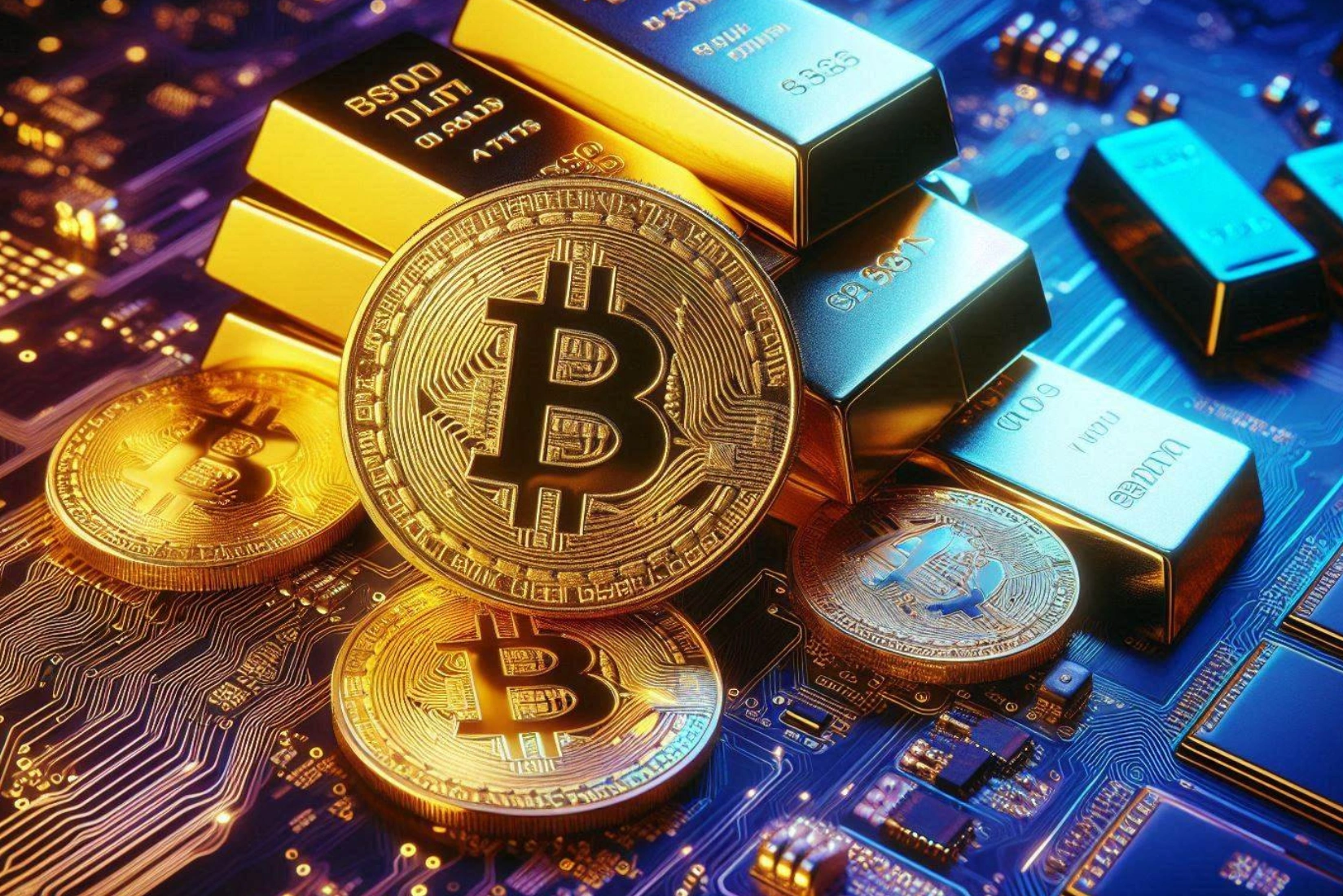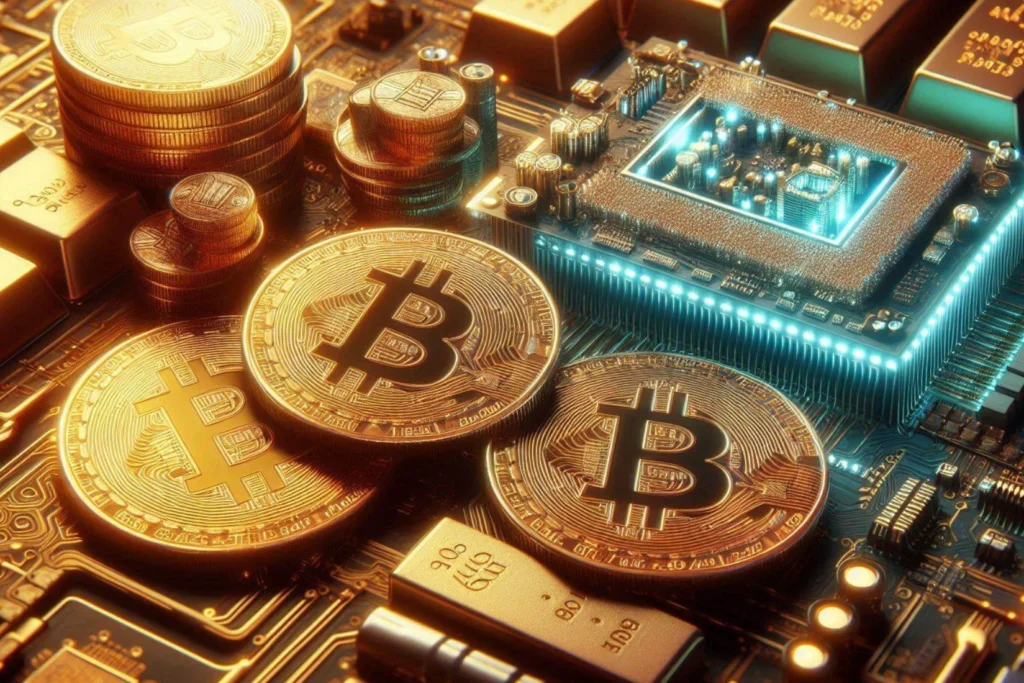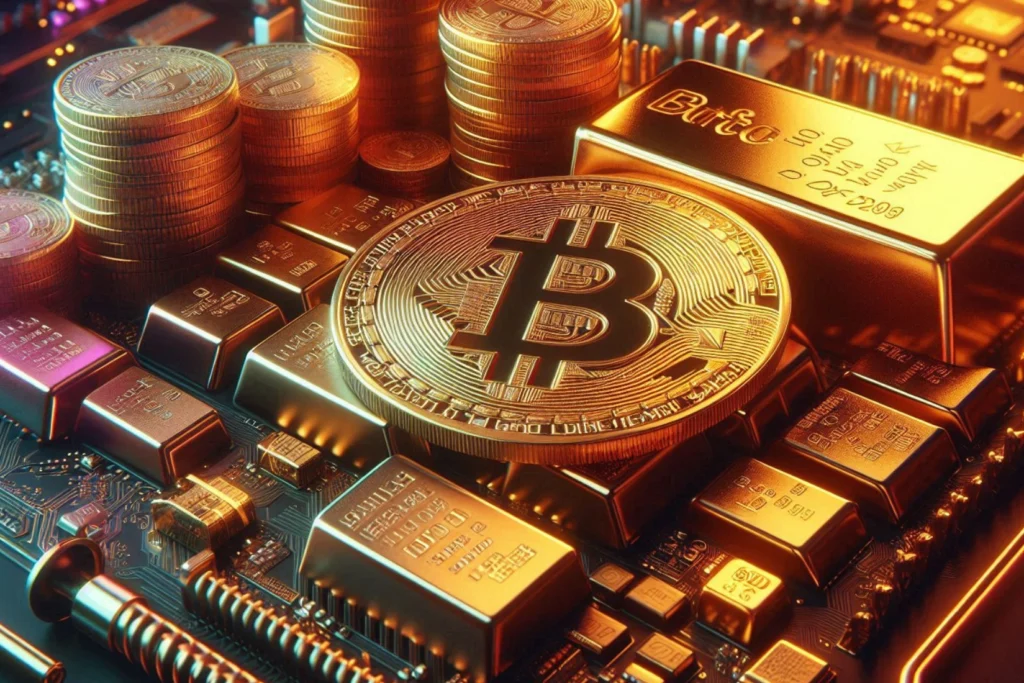7 Perspectives That Explain Why Bitcoin Is Called Digital Gold
April 27, 2025

“Bitcoin as digital gold”—you’ve heard the phrase tossed around by crypto fans, finance experts, and maybe even that friend who won’t stop talking about decentralization. But what does it actually mean?
To make sense of the metaphor, we’ve pulled together 7 viewpoints that paint a fuller picture of the bitcoin-gold comparison—from tech roots to old-school economics. Spoiler: it’s not just about shiny metal and computer code.
1. The Scarcity Factor: Only 21 Million Bitcoins Ever
Scarcity is one of gold’s oldest value tricks—and Bitcoin copies that playbook perfectly. There will only ever be 21 million bitcoins. No more. It’s written into the code like a law of nature.
In contrast to fiat currencies, which governments can print on demand, this cap gives Bitcoin a built-in defense against inflation. Some call it the “digital hard asset.” And let’s be honest, that does sound kind of powerful.

2. Store of Value—But With a Tech Twist in Bitcoin as Digital Gold
Gold’s been a “store of value” for centuries—steady, reliable, and resistant to market shocks. Bitcoin? It wants to be the same. Maybe not yet… but eventually.
The argument is: over time, Bitcoin could hold its value like gold does, even in economic turmoil. Especially when people start to lose trust in traditional banks. Some investors are already treating it like a hedge, just like they would gold bars in a vault.

3. Portability: Good Luck Carrying $1M in Gold
Gold’s heavy. Really heavy. Moving it across borders, storing it securely, or dividing it into chunks? Not so convenient.
Bitcoin, on the other hand, lives in your phone, your hardware wallet, or even your memory (if you’re into memorizing seed phrases). When it comes to moving wealth quickly and discreetly, bitcoin as digital gold really shines.

4. Transparency & Trust Through Code when Bitcoin as Digital Gold
Gold has to be tested and verified physically. Is it pure? Is it real?
Bitcoin doesn’t have that problem. Every single coin, transaction, and timestamp is visible on the blockchain. Anyone can audit it. That’s part of why some people say Bitcoin is even more transparent than gold—just in a very different way.

5. Market Behavior: Volatility Is Still a Thing
Let’s not gloss over this—Bitcoin is still volatile. Like, very. While gold usually chills out in a stable price range, Bitcoin’s price chart sometimes looks like a rollercoaster designed by adrenaline junkies.
That unpredictability is what makes some traditional economists side-eye the whole digital gold comparison. It’s a valid concern—but maybe volatility is just a growing pain.

6. Institutional Buy-In Changes the Game
From BlackRock to Tesla, big names are now getting into Bitcoin. That kind of support adds weight—literally—to the “digital gold” label.
When major players treat Bitcoin as a long-term asset, not just a speculative trade, it shifts public perception. Suddenly, Bitcoin looks less like a fad and more like a modern equivalent of a gold reserve.

7. Generational & Cultural Shift
To some, gold feels like your granddad’s safety net. Bitcoin? That’s Gen Z and Millennials staking a claim on a new kind of financial independence.
The idea of bitcoin as digital gold might not be perfect—but for a lot of people, it represents a mindset shift. From physical to digital, from centralized to self-sovereign… and from tradition to transformation.
Final Thought: Is Bitcoin Really the New Digital Gold?
Maybe it’s too soon to say definitively—but the comparison makes more sense than you might think. Between its scarcity, portability, and evolving role in finance, bitcoin as digital gold isn’t just a catchy phrase. It’s a framework for how people are rethinking money.
Whether you agree or not, it’s worth watching. Gold had centuries to prove its value. Bitcoin’s just getting started.
Relevant news: How to Understand Bitcoin as Digital Gold in 5 Simple Steps
